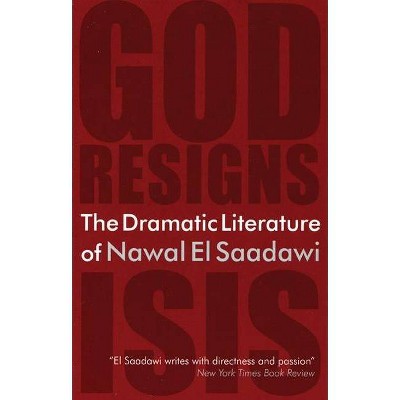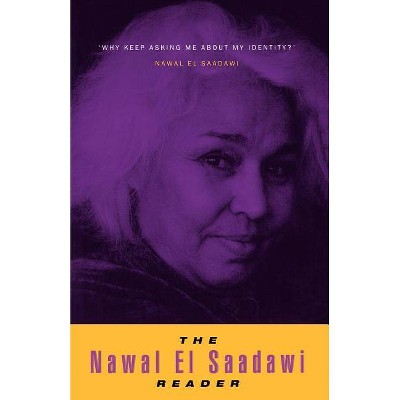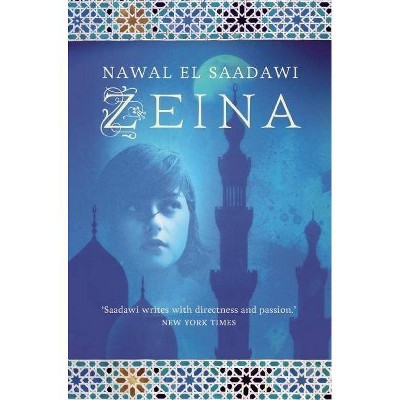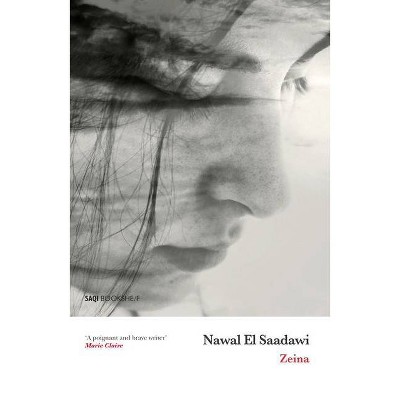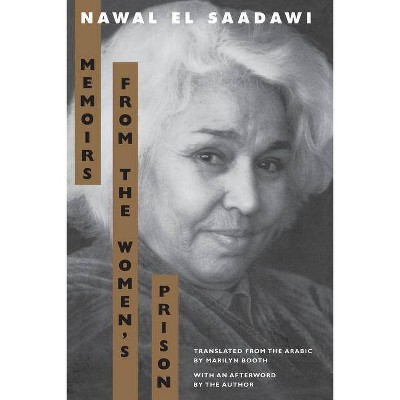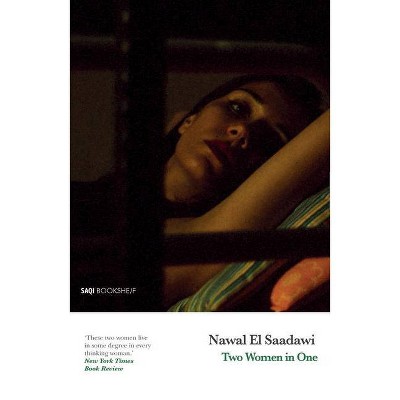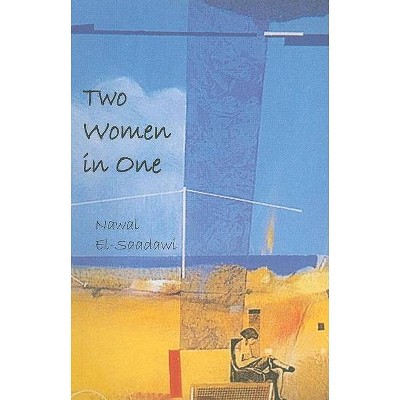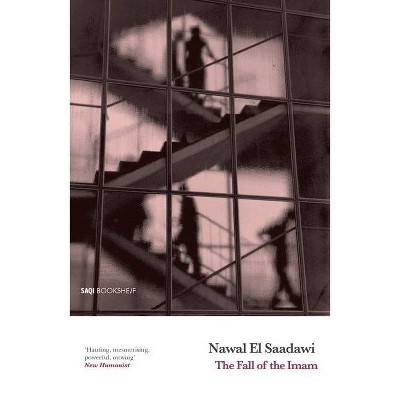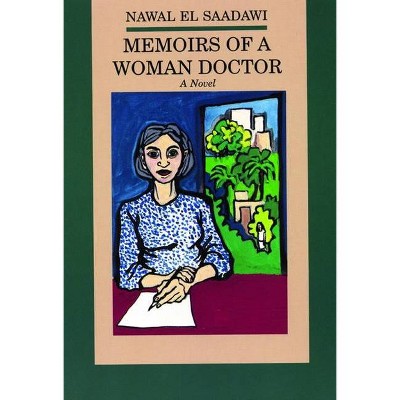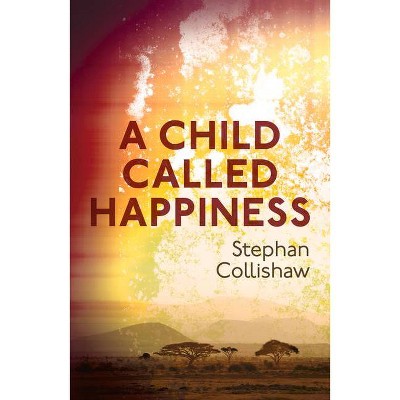Diary of a Child Called Souad - (Giants of Contemporary Arab Literature) by Nawal El Saadawi (Paperback)

Similar Products
Products of same category from the store
AllProduct info
<p/><br></br><p><b> About the Book </b></p></br></br>The author's earliest surviving piece of creative writing, written as an elementary school assignment.<p/><br></br><p><b> Book Synopsis </b></p></br></br>This book is the first autobiography from leading Egyptian feminist Dr. Nawal El Saadawi, written at the age of ten in the form of fiction as she explores her early awakening to the world around her. Now known for her bold spirit and probing mind, El Saadawi uncovers through a child's eyes in this novel the hypocritical values and traditions carried on by family, education, religion, and society. With amazing courage she weaves a tale of the fear, guilt, and repressive compliance forced upon her as a woman and upon her generation as the price to be paid for leading a civilized existence. Struggling to come to terms with taboos concerning her maturing body, the young El Saadawi reveals in this book the makings of a revolutionary spirit and relentlessly analytical mind. With introductions by the author and translator, this is a must read for devotees of El Saadawi to witness an early record of the maturing of her thoughts and the shaping of her ideas.<p/><br></br><p><b> From the Back Cover </b></p></br></br><p>Diary of a Child Called Souad is Nawal El Saadawi's first autobiography, written at the age of ten in the form of fiction as she explores her early awakening to the world around her. Now known for her bold spirit and probing mind, El Saadawi in this novel uncovers through a child's eyes the hypocritical values and traditions carried on by family, education, religion, and society. With amazing courage she weaves a tale of the fear, guilt, and repressive compliance forced upon her as a woman and upon her generation as the price to be paid for leading a civilized existence. Struggling to come to terms with taboos concerning her maturing body, the young Nawal's writing reveals the makings of a revolutionary spirit and relentlessly analytical mind. A must read for devotees of El Saadawi's writing to witness an early record of the maturing of her thoughts and the shaping of her ideas.</p><p/><br></br><p><b> Review Quotes </b></p></br></br><br><p>DIARY OF A CHILD CALLED SOUAD by NAWAL EL SAADAWI<br/><br/>REVIEW<br/>1. The manuscript is an edition and translation of a juvenile work of fiction by the distinguished Egyptian feminist, Dr Nawal El Saadawi. Dr Omnia Amin introduces the work, placing it the context of the life and thought of its author. An interview by Omnia Amin is produced. Dr El Saadawi wrote the work as a school exercise. It was dismissed by the teachers and was rediscovered by the author decades later. It is the fictionalised life of a girl growing up, questioning everything.<br/><br/>2. The work is original, Dr El Saadawi is a global figure, active in human rights and her early work explains and highlights her early development.<br/><br/>3. There is a growing body of memoirs from the Middle East that illuminate the personal and the social. Although a novella, there is clearly much of the young Nawal in the story of Souad. Although the narrative is in the third person, necessarily because she dies at the age of twelve, Souad is Nawal.<br/><br/>4. The central text is extremely readable. It will be an enduring work. I would make a few recommendations: <br/>4.1 A bibliography of Dr El Saadawi's works available in English. Some relevant works are listed on page 13; translators of all should be given.<br/>4.2 The interview is undated. Was it originally in Arabic or English?<br/>4.2 Some proof reading suggestions this is not comprehensive. for example, <br/>4.2.1 Conversations are printed in italics. Would it be better if each speech was given a separate paragraph, as is the custom in fiction? This would make it easier to read.<br/>4.2.2 consistency in capitalising He (for God); see page 62 for examples.<br/>4.2.3 page 3, line 3: The dates do not make sense. Omnia Amin met her at a conference in 2002 when Dr El Saadawi was 71, not 76.<br/>4.2.4 page 6, line 6: has for have. (The subject, influence, is singular.)<br/>4.2.5, page 9, middle of the page: The Novel should be italicised.<br/>4.2.6, page 15, line 4: from childhood, not since childhood.<br/>4.2.7, page 20, line 4: For the sake of clarity I would put yet between not and comprehend.<br/>4.2.8, page 36, para 3, last quotation from the mother. It does not run smoothly.<br/>4.2.9, page 41, para 3, line 2. Capital A for Almighty.<br/>4.2.10, page 51. Last sentence is awkward and needs rewriting.<br/>4.2.11, first line. Screamed for screams. (The Arabic tense has come into the English.)<br/>4.2.12, page 73, fifth from last bullet point: I would put for more than fifty years after efforts. (She was not campaigning for a fifty year limit on FGM.<br/>4.2.13, page 73, last bullet point: Not totally clear, on second line, perhaps and should be replaced by a semicolon.<br/><br/>5. The editor/translator is unquestionably suitably qualified.<br/><br/>6. Not applicable.<br/><br/>7. Yes. Social and political history of Egypt. Arabic literature. Human rights. Feminine studies.<br/><br/>8. The work is unique and there are no fitting comparisons. Like Naguib Mahfouz, any sustained writing is worth publishing, for its own sake and for the light it throws on a major public figure.<br/><br/>9. I would recommend you publish it as it stands with minor revisions as indicated. Perhaps a professional in-house proof reader should go through the text again.<br/>I am happy to provide an endorsement.<br/><br/></p>"<br><p/><br></br><p><b> About the Author </b></p></br></br><p>Nawal El Saadawi, a leading Egyptian feminist, has spent her life campaigning for freedom and justice despite being imprisoned and threatened with death. She is the author of over fifty books, translated into some twenty languages, and is the founder of the Arab Women Solidarity Association in Egypt.</p><p>Omnia Amin is Professor of English Literature at Zayed University in Dubai, UAE. She is an author and translator who works on the cutting edge concepts of quantum physics, the archetypes of mythology, the empowerment of women, and the spiritual evolution of humanity.</p>
Price History
Price Archive shows prices from various stores, lets you see history and find the cheapest. There is no actual sale on the website. For all support, inquiry and suggestion messagescommunication@pricearchive.us
